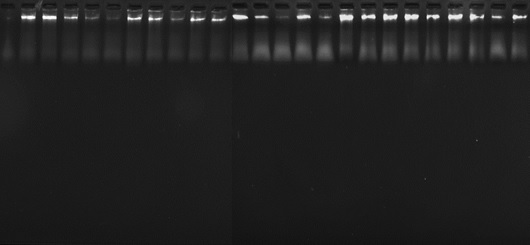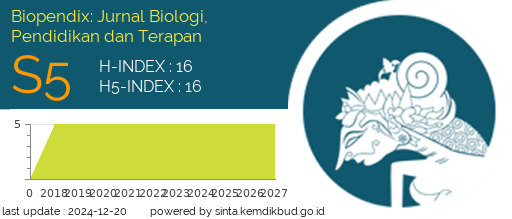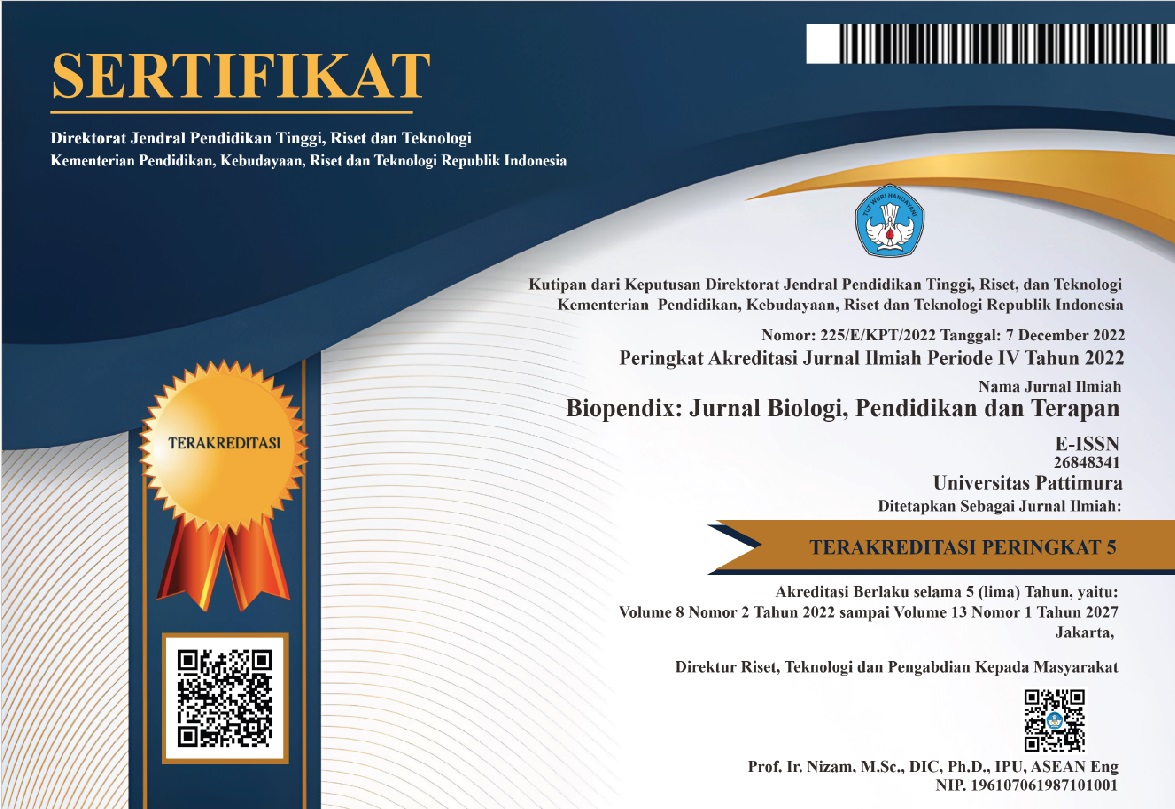Deteksi Gen SLC30A8 pada Sampel Darah Penderita Diabetes Melitus Tipe 2 Dengan Metode Polymerase Chain Reaction
Abstract
Background: The SLC30A8 gene is a zinc efflux transporter associated with insulin secretion expressed by the pancreas. The SLC30A8 gene causes abnormalities in insulin synthesis, maturation & secretion as well as abnormalities in the body's effectiveness in responding to glucose metabolism. Polymerase Chain Reaction (PCR) is a DNA amplification method that can be used to detect the presence of the SLC30A8 gene in type 2 diabetes mellitus patients.
Methods: This study used a descriptive research method conducted at the Molecular Biology Laboratory of Sekolah Tinggi Ilmu Kesehatan Nasional. The sampling technique in this study used a total sampling technique on 25 type 2 diabetes mellitus patients who were members of the Prolanis Diabetes Mellitus Puskesmas Bulu Sukoharjo, Central Java. The detection of the SLC30A8 gene went through several stages, namely DNA isolation, qualitative testing of DNA isolates, quantitative testing of DNA isolates and PCR
Results: The results showed the presence of the SLC30A8 gene in all blood samples from type 2 diabetes mellitus patients using the PCR method. The primer used with forward primer 5'-GGACGAAAGAGTTCCCATAGCG-3' and reverse primer 5'- ATAGCAGCATGTTTTGAAGGTGGC-3' attaches specifically to chromosome 8 with a product length of 429 bp.
Conclusion: All blood samples of type 2 diabetes mellitus patients detected the SLC30A8 gene
Downloads

Authors who publish with this Journal agree to the following terms:
- Author retain copyright and grant the journal right of first publication with the work simultaneously licensed under a creative commons attribution license that allow others to share the work within an acknowledgement of the work’s authorship and initial publication of this journal.
- Authors are able to enter into separate, additional contractual arrangement for the non-exclusive distribution of the journal’s published version of the work (e.g. acknowledgement of its initial publication in this journal).
- Authors are permitted and encouraged to post their work online (e.g. in institutional repositories or on their websites) prior to and during the submission process, as it can lead to productive exchanges, as well as earlier and greater citation of published works




 2
2






